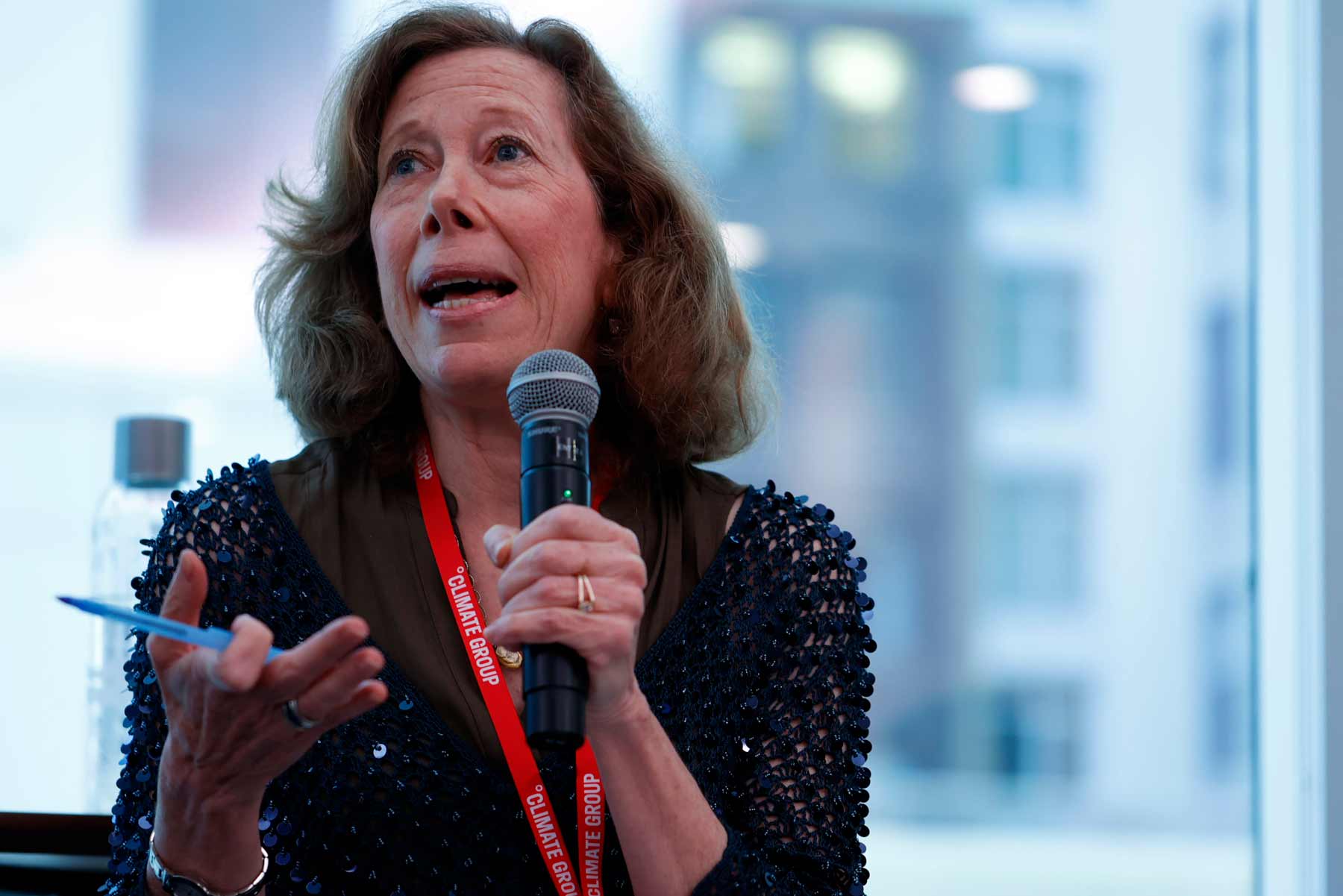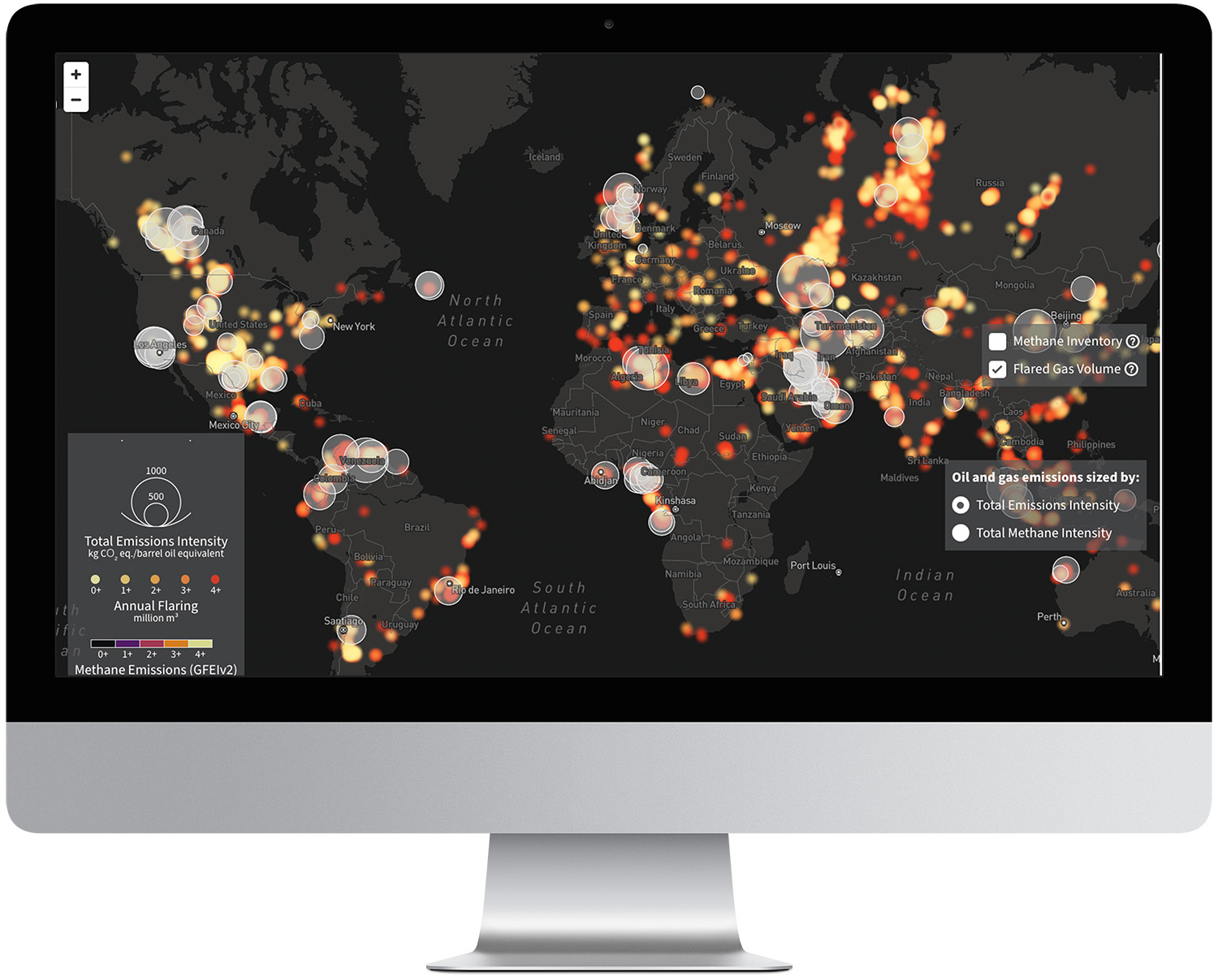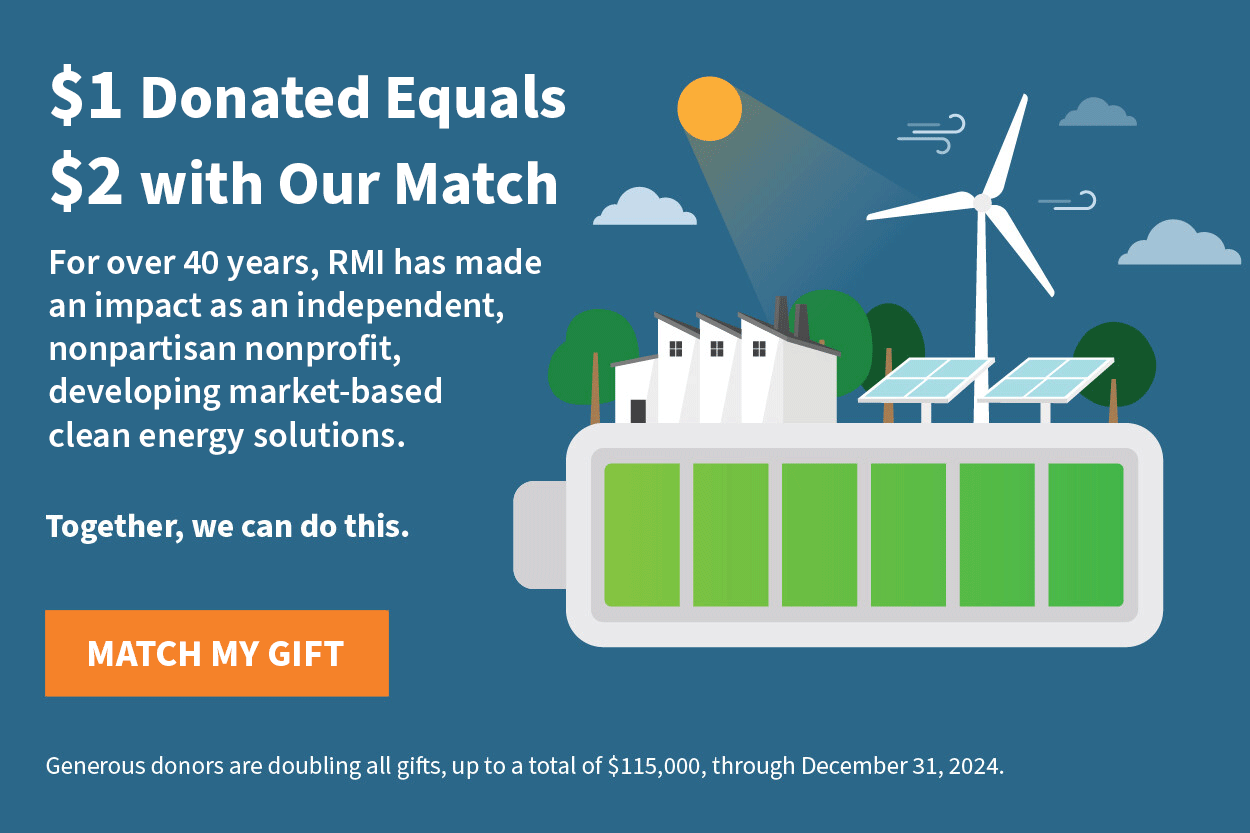Getting Smart with Climate Intelligence
We’re using groundbreaking open-source tools to reduce the climate impacts of oil and gas supply chains — from extraction through end use.
This is an excerpt from RMI's 2022 Annual Report.
Read the full report.
Global oil and gas supply chains have an outsized impact on the climate. Every year, these supply chains — from oil and gas production, processing, and transport — leak an estimated 84 million tons of methane, a greenhouse gas which is 80 times more potent than CO2. Accordingly, the impact of this volume of methane is equivalent to the yearly total CO2 emissions from all cars and trucks worldwide.
Fortunately, over 120 nations have signed on to the Global Methane Pledge, agreeing to cut methane emissions 30 percent by 2030. The United States recently enacted a law that puts a price on leaked methane from oil and gas operators. And the EU has approved a novel trade mechanism that requires importers to pay a fee on products to prevent such leakage.
However, even as pressure grows to transition away from oil and gas, the global process will take decades. We must continue to reduce methane leakage while these fuels are still in use. RMI’s Oil and Gas Solutions initiative devises actionable, cost-effective solutions to make the oil and gas we use today as low-emitting as possible while we transition to a zero-carbon energy system. Our groundbreaking, open-source tools generate climate intelligence that makes emissions visible and sets data-driven standards for industry operators and gas buyers to make informed decisions.
While the market treats all oil and gas as essentially the same, no two equivalent barrels are equal. The life-cycle climate footprints of these fossil fuel resources vary markedly in their emissions intensity. Together with our academic partners, RMI is transparently quantifying previously hidden emissions from oil and gas and using this data to develop powerful insights that allow policymakers, regulators, operators, investors, and customers to prioritize near-term climate action. This cutting-edge work exposes gaps in self-reported emissions data, reinforcing that we cannot manage what we do not measure.
In June 2022, we re-launched the Oil Climate Index plus Gas (OCI+) — a collaboration between RMI, Stanford University, University of Calgary, and Koomey Analytics that was first released in 2015 by the Carnegie Endowment for International Peace. OCI+ is a free web tool that transparently assesses the life-cycle greenhouse gas emissions from a majority of the world’s oil and gas resources. This climate intelligence offers a powerful alternative to other piecemeal data platforms that are published by polluters themselves or hidden behind third-party paywalls. OCI+ aggregates total greenhouse emissions, breaks out methane, assigns shadow prices, analyzes emissions drivers, identifies emissions reductions scenarios, and more.
Data from the OCI+ and the accompanying report Know Your Oil and Gas: Generating Climate Intelligence to Cut Petroleum Industry Emissions confirms the variability of oil and gas emissions intensities, underscores opportunities to target methane emissions reductions in the near term, and offers decision makers tools to strategically and cost-effectively reach their climate goals.
The new OCI+ webtool is already making waves. For example, we compared the climate footprints of Russian gas and showed how much more emissions-intensive it is compared with gas from the United States, Qatar, and Norway. This analysis reached over 100 million readers and was featured in The Economist. OCI+ is also informing financial actors, including MunichRe, Bloomberg, and the Capital Group; along with industry advisors, such as Solomon Associates and Schlumberger; and is also being used by our partners to advance more accurate and trustworthy emissions reporting. For example, data from OCI+ is being used to establish emissions inventories for the oil and gas sector for Climate TRACE, a global coalition of which RMI is a member created to independently track greenhouse gas emissions.
Case Study: Growing the Market for Low-Emitting Resources
Armed with better data on where emissions are coming from in the oil and gas sector, RMI and our affiliates are developing market standards that incentivize customers to purchase oil and gas with the lowest methane intensities.
MiQ, an independent nonprofit established by RMI and Systemiq, was founded to build a market that helps to rapidly reduce methane emissions from the oil and gas sector. The MiQ standard is an independent framework for assessing methane emissions and practices for oil and gas facilities. Facilities receive an A to F grading based on their emissions, the technologies they use, and the policies and procedures in place for improvement. MiQ certificates can be relied upon to credibly prove the methane emissions of gas traded between sellers, traders, and buyers.
Today, MiQ is the fastest growing trusted methane emissions certification standard, working with over 4 percent of the global gas supply, expected to grow to 5.5 percent by the end of 2022. In the United States, MiQ covers 17 percent of supply, and aims to get to 100 percent within the next decade.
Meet Debbie Gordon, RMI Senior Principal
When asked recently how she became interested in working in energy and environmental issues, RMI Senior Principal Deborah Gordon responded, “I was a new driver during the oil crisis. As a 15-year-old, waiting in line at the gas pump was not how I wanted to spend my time.” Energy security risks served as a wake-up call that has guided Gordon throughout her career.
Fast forward to 2022 and Gordon is an accomplished author and leading authority in oil and gas differentiation. If you read her latest book, No Standard Oil: Managing Abundant Petroleum in a Warming World, you’ll see the foundation on which RMI’s Oil and Gas Solutions Initiative is based and the team’s effective strategy rests.

No Standard Oil tells a real-world story that Gordon learned first-hand working on oil, gas, and climate change from every angle. Trained as a chemical engineer and policy analyst, she spent her early career at Chevron, directed the Energy Policy program at the Union of Concerned Scientists, taught at Yale and Brown, and joined the Carnegie Endowment for International Peace.
Throughout her career, she uncovered half-truths and gaps in knowledge and data about oil and gas that have delayed climate progress. OCI+ was born from this unique perspective and a desire for transparency and collaboration so decision makers can verify self-reported company and country climate pledges, improve accountability, and durably mitigate global emissions.

"Three years ago, we supported RMI to take a calculated risk to transparently differentiate oil and gas climate impacts by working with various industry stakeholders and establishing MiQ certification standards. Now, producers, shippers, refiners, and consumers have the tools they need to accelerate market action and rapidly reduce harmful methane and other emissions.”
—Lyda Hill, Lyda Hill Philanthropies
